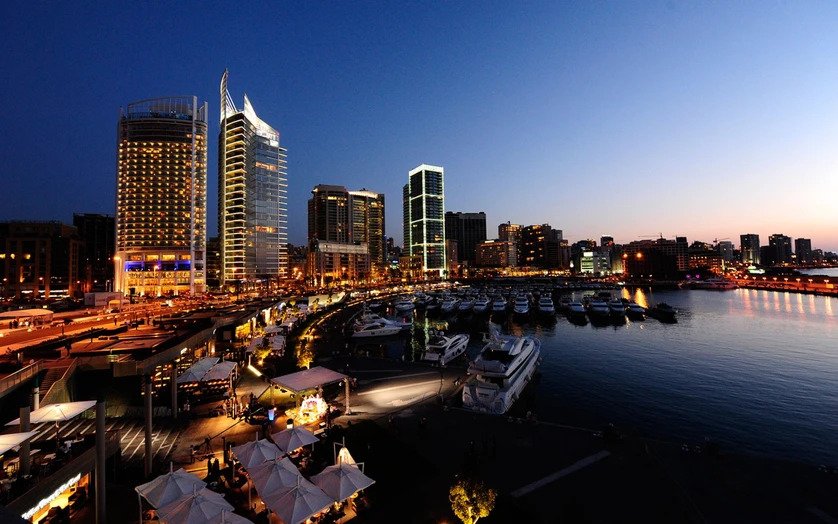
- 30 Nov-2022
The Real State Of Real Estate Ch.3: What The Future Holds.
Who can predict the future? Nobody really. You can give your best-educated opinion and that’s as close as you will get. So to give your educated opinion you have to first, be educated. Study the pattern and read between the lines. Let's cut to the chase, here is my educated opinion on what the future holds for real estate sector in Lebanon.
What the Banks Are Saying
Banks put out annual reports on the economy and how its performing, and how it is expected to perform. They also release annual reports on the real estate sector, highlighting key areas of performance, sector activity, patterns, and market outlook. Let me give you the gist of their predictions because all of them pretty much sound the same. They all use a bunch of the same repetitive terms: status quo, political stability, price discounts, per capita income. When addressing the future, you are basically assuming where things might end up, which is ultimately impossible. Banks have been using these terms in their reports ever since the real estate sector began to slow down. They do make the most sense to use if you think about it. It is very easy to list a bunch of economic indicators and say "Oh when all these begin to improve so will the real estate sector." In the practical sense, they are right don't get me wrong. I'm not going to sit here and dismiss decades of economic contribution from the likes of Adam Smith and John Keynes. But if you think about it, in our history as a country, when have we ever really economically over achieved? When has Lebanon ever really had absolute political stability? When have we ever achieved a strong "per capita income"? even during the days of the real estate peak in 2010, people were buying houses left and right yet Per Capita Income stood at $15,740 (World Bank). Today, the realty market has consensually slowed down, while Per Capita Income has dropped to $13,780. Its not that dramatic a drop to be fair. It's definitely that big of a drop to claim "You see, that's why people aren't buying!" In my opinion, neither income was ever sufficient enough to sustain purchasing a house at previous or current market price levels.
What I'm Saying
So if the previous and current Per Capita Incomes were relatively similar, why did more people buy more houses back then then they did in the last couple of years?
In a Bank Audi report they state the following in their closing statements:
"All in all, we can state that there are no threatening downside risks in the market, but rather factors delaying the upturn. In other words, there is no risk of collapse in prices...Today and for the time being, the market is slow. For buyers, it is an ideal time to bargain and get the best possible deal, knowing that eventually prices will pick up again" - Bank Audi:Lebanon Real Estate Sector (2016).
In the first two chapters of this thread, I stated that that market is slow, prices have dropped, and now they have plateaued, before they begin to rise again. These points were made before I was sent the Bank Audi report by a colleague of mine. So what I'm saying is what I've been saying and what is being repeated by Banks and financial institutions. Why will price rise again? Because real estate is cyclical, and heavily dependent on the state of the overall economy. But Lebanon is unique in the sense that a large part of our economy is heavily reliant on real estate. So any decline and rise go hand in hand. Once you see the economy pick up, that's when you will see the sector pick up as well. And vice versa.
What the Future Holds
When it comes to any and all of Lebanese matters and affairs, there is an unorthodox factor in the way things go about. Its more intangible than tangible, unspoken rather than spoken. It does not have to do much with the economy, or data and facts, but rather a mutual understanding within our society. That is why saying the reason the real estate market slowed down is purely economical is not that accurate. The slowdown is as much social as it is anything else. As stated above, Lebanon never really did have that prosperous an economy, yet the market boomed in '08. And that is also the same reason why economists and banks alike state that when a President is to be elected, that the market would pick up. That is an actual claim that was given by banks and economists in Lebanon. Sure enough the market saw a small surge in activity after the presidential elections.
In terms of what the future holds for the sector it is still uncertain. However, in my opinion any reforms or readjustments will not be economic . Developers will not continue with the price discounts as some banks will, unwisely, have you believe. Developers offer discounts now because they are willing to reach a mutual meeting point in order to facilitate a deal to occur. So who will adjust, and how exactly?
From the consumer side its simple. After the markets ups and downs, they've become knowledgable of the sector and more acquainted on how to spend within it. Their now accustomed to its highs and lows and know that real state truly is an investment and not simply a purchase. The economy will eventually pick back up again. I mean barring a world war/apocalyptic sort of event, in which case buying houses should be least your concern. So if your a consumer wanting to purchase or invest in property, now would be better than later, but either case people are buying now, more people will buy later, that's just how it is.
From the developer’s side, what the future holds is better planning. I think developers should and slowly have begun to make way with the traditional architecture of the Lebanese homes. For the up and coming generation who are looking to purchase houses, the design of spacious dining areas and salon areas seems outdated and does not fit their requirements nor their personas. The new generation is need driven and has specific requirements. Better space strategy and interior architecture is what developers must adopt and adapt in order stay alive in the future market. Loft like houses that rely on higher ceilings and more open plan rooms to allow for more open space and flow within the property. Large windows and skylights that will allow for natural lighting rather than the common and catastrophic crystal chandeliers you see in houses today. Another factor that is slowly being introduced as an added benefit but will quickly become a necessity are eco-friendly buildings, or Green buildings. Green buildings could be properties that are equipped to have better ventilation to make use of the homes energy saving and consumption. In an ideal world they would be equipped will solar panels for the use of energy. To the naysayers that are already dismissing the idea of solar panels being sustainable in Lebanon, they've actually already been introduced, so yeah...
The point I'm trying to make with all this is that price gauging today was never meant to sustain. It was just a means to catch up to the market while we re-adjust. If developers truly wanted to account for the next ten years, better planning and product differentiation (i.e. smarter architecture) while maintaining fair prices is the way to go.
"So if your a consumer wanting to purchase or invest in property, now would be better than later, but either case people are buying now, more people will buy later, that's just how it is."
Fin.
When all 3 chapters of this thread are read in sequence, it illustrates how a typical real estate cycle is. A boom occurs, this boom excites the people and thus their spending habits increase because of it. Then the market slows down, and as a result the people do so as well, cautiously spending, if they are spending at all. And then the readjustment period, where the prices become sticky, barely moving, and optimism among the public is present again, with people purchasing frequently but cautiously. Key points one must takeaway from all this are the following. It is reckless and idiotic to dismiss a sector typical slowdown as its demise or downfall. It's stupid and you shouldn't do it and you shouldn't listen to someone doing it. And if they really sound stupid then you should call them on their shit. Another thing is real estate is as hefty an investment there is. Once you decide to invest in it, do so intelligently, by studying the basics of the market. Know your options, and always bargain, it never hurts.
To end the "Real State of Real Estate" thread I leave you with this. Prices may have fallen, but volume of transactions recently have picked up. All while were still missing any semblance of foreign buyers, i.e. the money Arabs. So this increase in volume of transactions is strictly Lebanese citizens buying Lebanese homes to live with their Lebanese families. When the world is finally rid of its current war torn lifestyle, and people decide to love each other again, the market will open, flowers will bloom and investments will flood, turning the page on the what we will look back in history as our real estate enlightenment.

